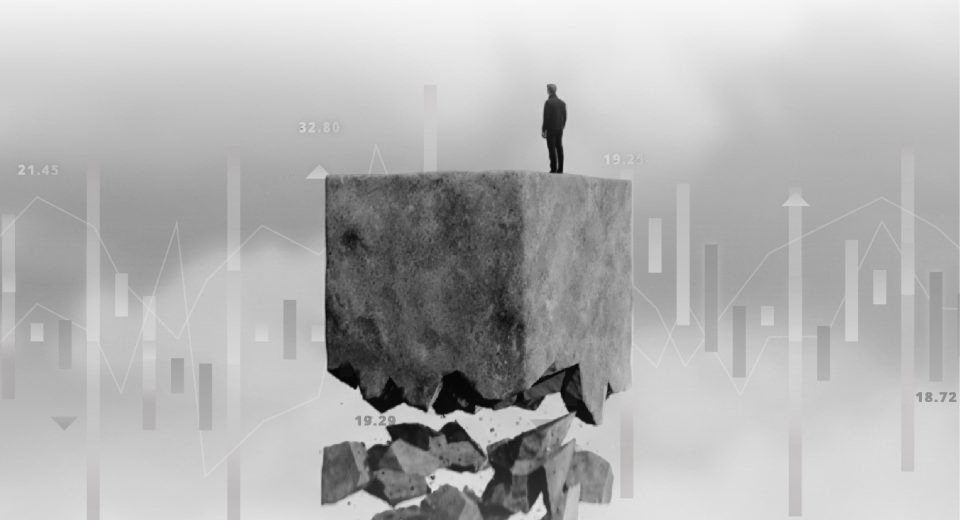Learn from Warren Buffett: Greatest Lessons Every Trader Should Know

Warren Buffett has consistently featured on Forbes’ list of billionaires. His net worth stood at $153.9 billion on June 10, 2025. He has been popularly dubbed the “Oracle of Omaha” due to the massive fortune he has accumulated through smart business and investing decisions. He has even surprised experts with some of his investment decisions. Traders have long followed Buffet to bolster their trading strategy with lessons from his choices.
For instance, he started increasing Berkshire Hathaway’s stake in Apple Inc. in late 2016 by purchasing shares worth $1 billion. By the beginning of Q4 2023, his stake had grown to over $150 billion. Warren Buffett’s interest in Apple was a surprise, given that he had avoided tech stocks for years, stating that technology was outside his “circle of competence.”
However, in October 2023, there was a sudden shift in his investment strategy. Berkshire Hathaway reduced its stake in Apple by 56% by June 2024, selling more than 515 million shares. This 8-year strategy is a good example of Buffett’s investment philosophy:
- Look at the potential of a business/asset before investing
- Build your position when the opportunity presents itself
- Be patient and disciplined during times of volatility
- Know when to close your position.
Want more trading lessons from one of the most successful investors in the world? Read on.
“Risk comes from not knowing what you are doing.”
In other words, trade what you know. Learn all you can about an asset, factors that move its price, future potential, etc. If you don’t understand how an asset class works, you are likely to make errors in identifying entry and exit positions. Also, remember the old adage – not all that glitters is gold. This is why despite the amazing run witnessed by tech stocks, Buffett stayed away from them. He only invested in Apple after he understood the company and when his analysis confirmed the stock’s growth potential.
“It is far better to buy a wonderful company at a fair price than a fair company at a wonderful price.”
Warren Buffet is known for his strategy of value investing. He looks for companies with strong fundamentals but undervalued stocks. However, he doesn’t simply buy the dip because an asset is cheap. According to Buffett, think of it as buying the business rather than just the stock. This requires rigorous due diligence to learn about the company’s track record, fundamentals and growth potential. After all, you do your research before buying a new laptop so that you get value for money. The same principle should be followed in trading. Don’t get swayed by recent share price volatility. Take a long-term perspective.
“Time is the friend of the wonderful company, the enemy of the mediocre.”
Warren Buffett has maintained a long-term investing horizon. When asked what his preferred holding period is for a stock, he is famous for saying, “Forever.” This is because Buffett is a great proponent of the power of compounding. However, while trading, you might not have an investment horizon of 5-10 years. Time can still be your friend with a short- or medium-term trading strategy. Sticking to your plan can help you ride out short-term volatility without losing your nerve and making rash decisions.
“The most important quality for an investor is temperament, not intellect.”
Warren Buffett is a great believer in building the right trading psyche. For him, it is all about discipline and keeping emotions away from trading decisions. Fear and greed are two emotions that can wreak havoc on your trading capital. According to Buffet, “We don’t have to be smarter than the rest. We have to be more disciplined than the rest.” Such discipline has to be learned. Practicing on a demo account, maintaining a trading journal and regularly reviewing your trades to identify areas of improvement can help you strengthen your trading strategy. Patience, discipline and consistency are the most important trading lessons of all.
“Be fearful when others are greedy. Be greedy when others are fearful.”
Following the herd without doing your own research can lead to losses. It is important to remember that most asset classes follow cycles of ups and downs, often influenced by investor sentiments like fear and greed. When the fear sentiment is high regarding an asset, its price is likely to see a sharp decline. Going against the herd at this time could help you acquire the asset at a low price. Then, all you have to do is wait patiently for the cycle to change. Conversely, greed leads to buying pressure, driving up asset prices. Set your take profit level such that your gains are locked in before the price direction reverses.
We saw an example of this in Warren Buffett’s strategy during the financial crisis of 2008. Fear led to stock prices plummeting. Buffett swooped in to buy mega-cap stocks like Goldman Sachs, GE, Bank of America and Dow Chemical. By 2013, he had earned a profit of over $10 billion.
Bonus Trading Lesson: “The more you learn, the more you earn.”
The Oracle of Omaha is a strong believer in continuous learning. He spends a large part of his day reading. Staying updated on the latest market developments and honing your trading skills are crucial to long-term survival in the financial markets.
To Sum Up
- Warren Buffett became one of the richest men in the world through his investing strategies.
- Traders can take away trading lessons to strengthen their strategies by following Buffett.
- Buffett never invests in assets he does not understand.
- He doesn’t buy an asset just because it is cheap. He does his research to establish growth potential.
- He also advocates a long-term perspective to ride out short-term volatility.
- Building your trading psyche and discipline are crucial to keep emotions at bay.
- Warren Buffett recommends not following the herd but doing your own research.
- He is also a proponent of continuous learning.
Disclaimer:
All data, information and materials are published and provided “as is” solely for informational purposes only, and is not intended nor should be considered, in any way, as investment advice, recommendations, and/or suggestions for performing any actions with financial instruments. The information and opinions presented do not take into account any particular individual’s investment objectives, financial situation or needs, and hence does not constitute as an advice or a recommendation with respect to any investment product. All investors should seek advice from certified financial advisors based on their unique situation before making any investment decisions in accordance to their personal risk appetite. Blackwell Global endeavours to ensure that the information provided is complete and correct, but make no representation as to the actuality, accuracy or completeness of the information. Information, data and opinions may change without notice and Blackwell Global is not obliged to update on the changes. The opinions and views expressed are solely those of the authors and analysts and do not necessarily represent that of Blackwell Global or its management, shareholders, and affiliates. Any projections or views of the market provided may not prove to be accurate. Past performance is not necessarily an indicative of future performance. Blackwell Global assumes no liability for any loss arising directly or indirectly from use of or reliance on such information here in contained. Reproduction of this information, in whole or in part, is not permitted.




